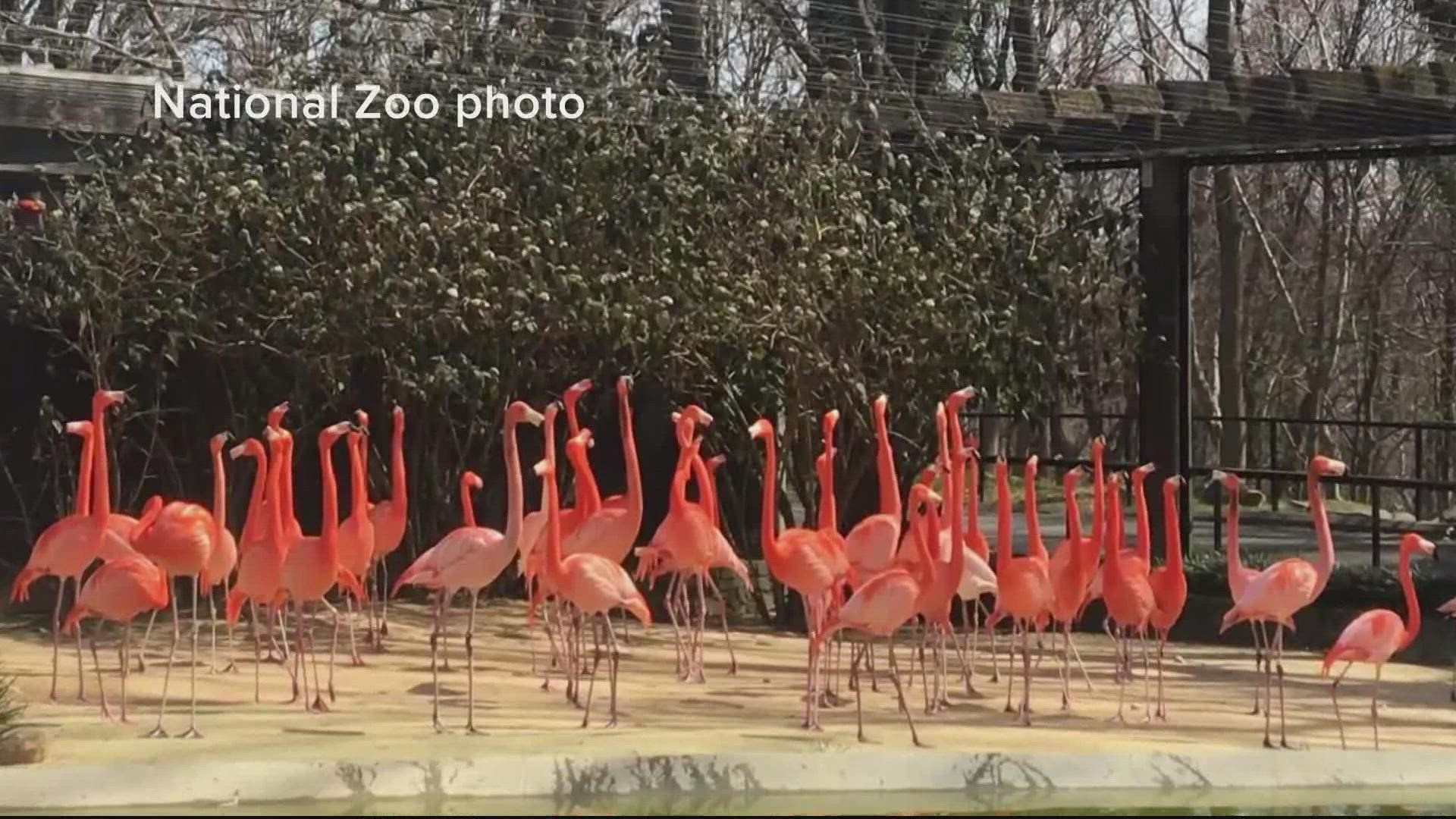WASHINGTON — Editor's note: The above video is from April 2022
Staff at the Smithsonian National Zoo and Conservation Biology Institute say more than two dozen American flamingos and one Northern pintail duck were killed by a wild fox on Monday.
Zoo staff says three other flamingos were injured when a wild fox got into the outdoor flamingo habitat in the early hours of May 2. Staff arrived to find deceased flamingos in the yard. Staff saw the fox in the yard, but the fox escaped, according to zoo officials.
The flock originally had 74 flamingos. The remaining flamingos were moved indoors to their barn and the ducks to a covered, secure outdoor space.
“This is a heartbreaking loss for us and everyone who cares about our animals,” said Brandie Smith, John and Adrienne Mars Director, Smithsonian’s National Zoo and Conservation Biology Institute. “The barrier we used passed inspection and is used by other accredited zoos across the country. Our focus now is on the well-being of the remaining flock and fortifying our habitats.”
The Zoo is actively investigating the incident and has taken the following immediate actions:
- Metal mesh surrounding the flamingo yard has been reinforced. It was last replaced in 2017 and passed an accreditation inspection by the Association of Zoos and Aquariums.
- Live traps have been set around the outdoor yard to catch any predators.
- Digital camera traps with an infrared sensor triggered by movement have been set up to photograph overnight activity.
The Zoo’s Bird House and surrounding plateau are undergoing a major renovation and are closed to the public. The Zoo’s flamingo flock lives primarily outdoors in a 9,750-square-foot yard with a heated pool and barn. The flamingo exhibit has been at the Zoo since the 1970s as currently designed and this is the first predator mesh breach, the zoo said.
While flamingos are an abundant bird species, they are threatened by habitat loss due to mineral mining and human disturbance. About 80,000–90,000 American flamingos, concentrated in four major breeding colonies, remain in the wild.

